Femia > Health Library > Pregnancy > Pregnancy health > Period vs. miscarriage: How to tell the difference
Period vs. miscarriage: How to tell the difference
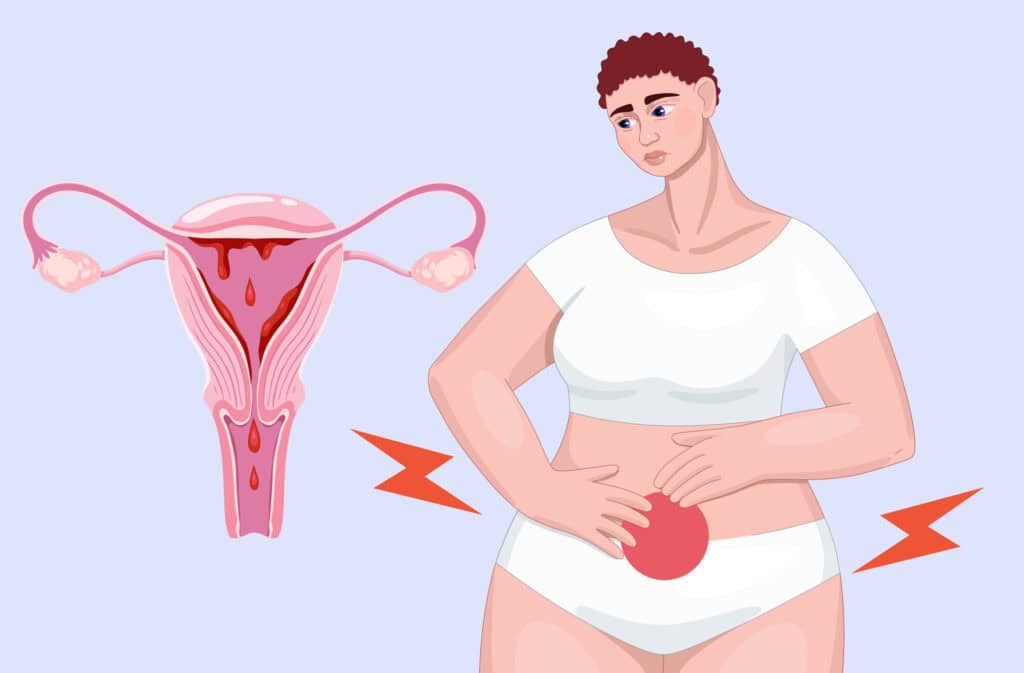
- Updated Mar 2, 2025
- Published
CRAFTED BY HUMAN
Crafted by human At Femia, we provide accurate and up-to-date information at every stage of your journey, from trying to conceive, pregnancy and postnatal support. All content is created by a real person based on in-depth research and own professional experience. Femia ensures that you will receive expert advice, strict accuracy and a personalized approach from our authors/medical experts. Learn more about our editorial policy.
FACT CHECKED
Fact checked At Femia Health, we maintain the highest standards of editorial excellence in delivering content focused on helping you conceive, guiding you through pregnancy, and supporting you postpartum. Explore our content review principles to learn how we ensure the accuracy and quality of our health and lifestyle tips for every stage of your journey.
Menstrual bleeding is typically regular and predictable, with mild cramping. Miscarriage bleeding is often heavier and accompanied by severe cramping, back pain, and the passage of tissue. Don’t hesitate to reach out to your trusted healthcare provider to get the care and support you need. Only a medical professional can definitively diagnose a miscarriage, and many cases of early pregnancy bleeding don’t result in pregnancy loss.
Miscarriage is a deeply personal experience that touches the lives of many women and their families. It is marked by bleeding, but so are periods. How can you tell the difference between a period vs miscarriage?
Understanding your body and recognizing the symptoms of a potential miscarriage, such as unusual bleeding and cramping, is very important. To help you during this challenging time, we will explore the traits of miscarriage vs heavy period. If you feel like something is wrong, don’t hesitate to seek immediate medical support.
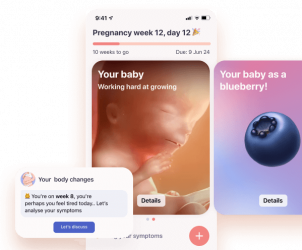
What is menstrual bleeding?
A period is the part of the menstrual cycle during which blood comes from a woman’s vagina. For most women, this happens every 28 days or so, but anywhere in the range of 23 to 35 days is considered normal. Stress and other factors can even mess with your period, so it might sometimes come early or late.
Most women have periods that last for about five days, but will normally take between two and seven days. Period bleeding is often heaviest during the first two days, and the color is usually red. On other days, the color of your period might be brown or pink. Most women lose between 20 and 90 milliliters (one to five tablespoons) of blood during each period.
It is normal to feel period symptoms aside from bleeding, such as cramps, bloating, breast tenderness, mood changes, irritability, trouble sleeping, headache, or acne. Symptoms can sometimes be very intense and at other times, mild. Some women feel no special symptoms at all—which is also perfectly fine.
👉Find out more: Toxic metals found in tampons: What you need to know
What is a miscarriage?
A miscarriage is a spontaneous pregnancy loss that happens before the 20th week of pregnancy. If a pregnancy loss occurs later on during the pregnancy, it is called a stillbirth.
How common are miscarriages? According to MedlinePlus, about half of all fertilized eggs are lost spontaneously, even before the woman knows that she is pregnant. Moreover, about 10% to 25% of women who are aware of their pregnancy will have a miscarriage.
Miscarriages most often happen during the first seven weeks of pregnancy. After the baby’s heartbeat can be detected, the rate of miscarriages drops significantly. Women who are over 35 years old and who have already had one or more miscarriages are at a greater risk of pregnancy loss.
Since miscarriages are so common, they can sometimes be mistaken for a heavy period, especially if a woman doesn’t know that she is pregnant. Still, there are some differences between miscarriage bleeding vs period.
Miscarriage bleeding vs. period
If you are pregnant and experience bleeding, try your best not to panic—not all bleeding is the same. Here are the main differences in bleeding patterns between an early miscarriage vs period:
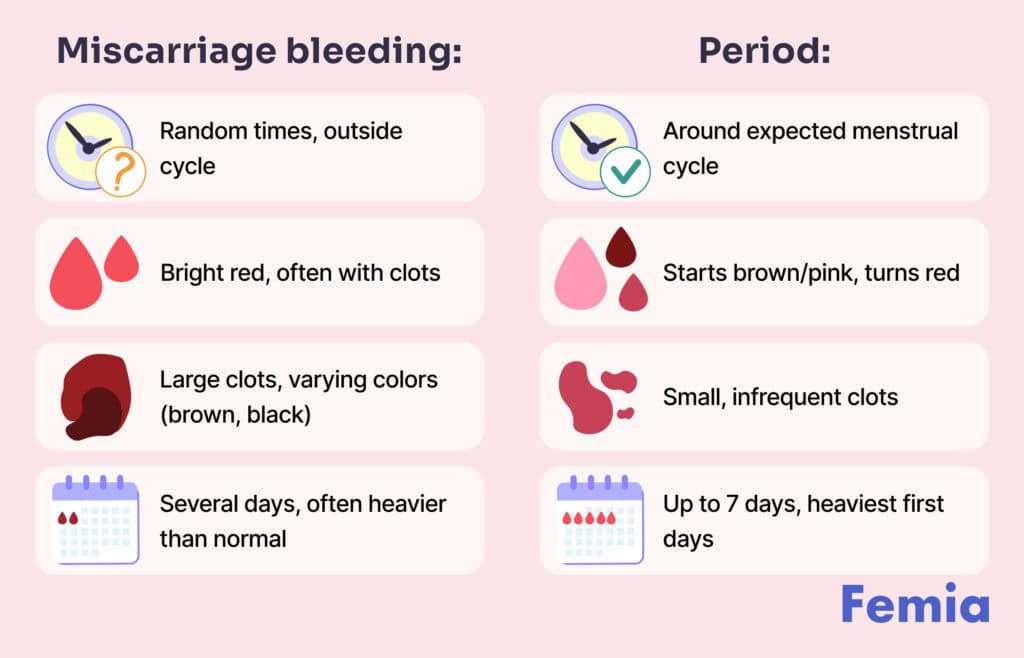
- Timing. When was your last period? If you experience vaginal bleeding around the right time, it is more likely to be a period. Miscarriage bleeding occurs randomly and outside of the expected menstrual cycle.
- Color and consistency. The color of your period may start off as brownish or pinkish and become red during the first couple of days. Miscarriage bleeding may start heavy and suddenly, or as spotting that progresses to heavier bleeding. The color of the blood is usually very bright red, often accompanied by clots.
- Clots. There is a difference in the appearance of period clots vs miscarriage clots. Normal periods contain tiny clots that don’t come out as often. Miscarriage bleeding often comes with large clots (might be bigger than a quarter) and tissue pieces, which can be brow, black, red, pink, grey, or white.
- Duration and flow. How to tell apart period vs miscarriage bleeding? Normal periods last for up to seven days, with the flow being heaviest during the first couple of days. Miscarriage bleeding can also last for several days but is much heavier than your regular period.
While a period-tracking app can help monitor your cycle and predict regular menstrual bleeding, distinguishing between a period and a miscarriage often requires attention to symptoms like severe cramping, back pain, and heavy bleeding, and consultation with a healthcare provider for an accurate diagnosis.
Associated symptoms
Miscarriages, just like periods, can be accompanied by other symptoms. Here is how to distinguish them:
- Cramping and pain. Cramps are also seen with periods, but during pregnancy loss, there may be strong muscle contractions and pain in the lower back and pelvis. Very intense cramps that come in waves might be a sign of a miscarriage.
- Fluid. During a miscarriage, you might notice a clear or pink fluid coming out of your vagina. This does not happen during periods.
- Loss of pregnancy symptoms. If you experience a miscarriage, symptoms such as nausea and breast tenderness might soon disappear.
When to seek medical advice
Do you feel like something is wrong, but don’t know how serious it might be? It is best to reach out to your trusted healthcare provider if you experience any of the following situations:
- If you are pregnant and have a vaginal bleeding with or without cramping.
- If you notice fluid, tissue, or clot-like material coming out of your vagina. It is best to collect the material and bring it with you to the hospital for examination.
If you feel like something is wrong, it is always best to seek medical care and get it checked out. Even if there is no reason for concern, this will give you peaceof mind and help you avoid any unnecessary stress during pregnancy.

If miscarriage did occur
When a miscarriage is in progress, it is important to understand that, unfortunately, there is no medical intervention available to stop it. As heartbreaking as it must be, the process cannot be reversed.
You should never have to go through a miscarriage alone. Your trusted healthcare professional is there to provide emotional support as well as take care of your health and safety during this difficult time.
Remember, only your healthcare provider can determine whether you are experiencing a miscarriage. They will most often do a physical exam and an ultrasound, as well as run blood tests to measure the levels of your pregnancy hormones.
In some cases, a miscarriage is not complete and some tissue may remain in your uterus. This can be harmful to your health. That is why your healthcare provider might ask you about any tissue in your blood or do a pelvic exam.
If there is remaining tissue, you might have to wait and see if your body will naturally remove it. Your provider might also prescribe medication to speed up the process and reduce the risk of complications, or suggest a minor surgical procedure.
After the miscarriage, your provider will keep a close eye on you to check for complications. Miscarriage complications might involve signs of infection or excessive bleeding. As hard as this might be, make sure to get the proper medical care after a miscarriage. This is not only important for your safety, but also for maintaining your reproductive health and potential future pregnancies.
Understanding the cause
In many cases, healthcare providers are unable to determine the exact cause of a miscarriage, despite thorough examinations and tests. We know that this uncertainty can be difficult to cope with when faced with such a profound loss. Although you are looking for answers, it is important to understand that miscarriages most often happen because of factors beyond anyone’s control.
During the first trimester, miscarriages are usually caused by the following factors:
- Problems with the chromosomes. Chromosomes are blocks of DNA that determine how your baby will develop. Sometimes, things just go wrong. This does not mean that there is anything wrong with you or your partner.
- Problems with the placenta. The placenta is an organ that connects you and your baby during pregnancy. If something goes wrong with the formation of the placenta, a miscarriage might happen.
During the second trimester, miscarriages usually occur because of the following factors:
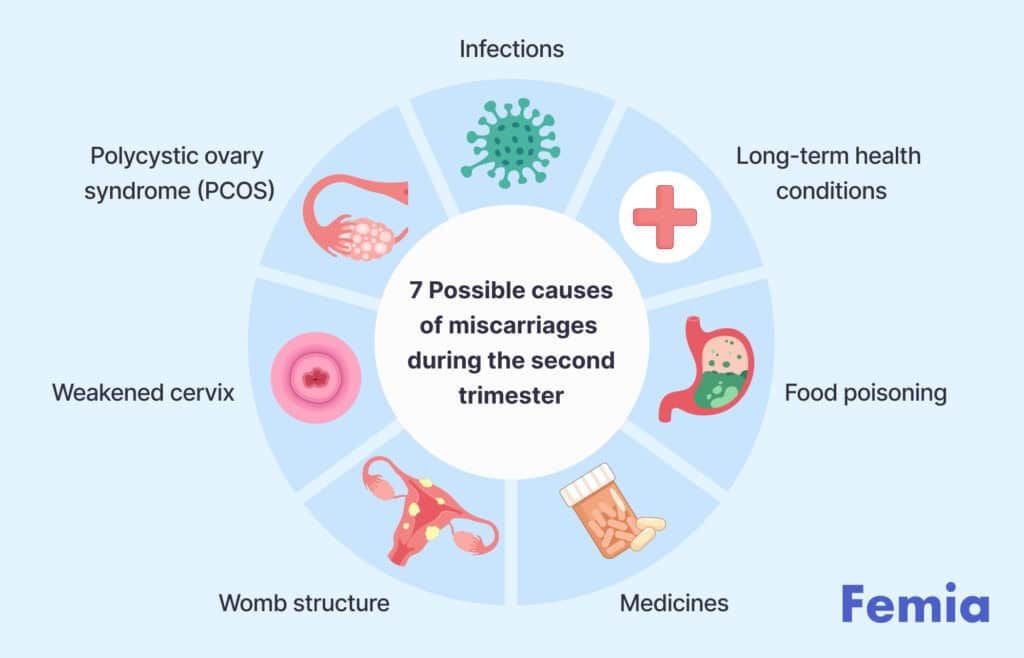
- Long-term health conditions. Some chronic conditions can increase your risk of having a miscarriage in the second trimester. These conditions include diabetes, high blood pressure, kidney disease, problems with the thyroid gland, or autoimmune conditions like lupus. A miscarriage often happens when these chronic conditions are not treated or well controlled.
- Infections. Infections with microorganisms, such as rubella (the cause of German measles), malaria, cytomegalovirus (CMV), HIV, chlamydia, gonorrhea, syphilis, or bacterial infections of the vagina may cause a miscarriage during the second trimester or hinder the development of your baby.
- Food poisoning. Some foods should be avoided during pregnancy, as they can easily be contaminated with parasites or bacteria that increase your risk of miscarriage. For example, listeriosis is an infection that most often happens as a result of eating non-pasteurized dairy products such as blue cheese. You can get toxoplasmosis from eating raw or undercooked meat, or catch salmonella by eating raw or undercooked eggs.
- Medicines. Certain medications are not safe for use during pregnancy, such as drugs for stomach ulcers (misoprostol), acne and eczema (retinoids), rheumatoid conditions (methotrexate), or pain (ibuprofen and other non-steroidal anti-inflammatory drugs—NSAIDs).
- Womb structure. If your womb is abnormally shaped or contains non-cancerous growths such as fibroids, this might increase the risk of a miscarriage.
- Weakened cervix. A miscarriage can happen when the cervix (the opening of your uterus) is weak and opens up too early. This weakness or damage can happen as a result of surgery or injury.
- Polycystic ovary syndrome (PCOS). Some evidence connects this condition with both higher rates of infertility and miscarriages.
👉Find out more: Which food can cause miscarriage: A comprehensive guide
Emotional and psychological impact
For many women who have experienced a miscarriage, emotional healing takes longer than physical healing. The psychological impact of pregnancy loss can be overwhelming, and intense feelings of sadness, guilt, anger, or anxiety are completely normal.
You should know that you are not alone. Many women who lose their baby struggle with handling their feelings for some time. The pace of healing and process of grieving may not be the same for you and your partner, and this is perfectly fine.
As you navigate this challenging time, It’s important to recognize that all emotions are valid. If you struggle with handling your feelings, talk with a therapist who specializes in reproductive health or look for support groups, such as Share: Pregnancy and Infant Loss Support. Having a memorial for the baby you lost might also help you heal.
After a miscarriage, it is only natural to worry about getting pregnant again. It is good to know that most miscarriages are one-off events and often followed by healthy pregnancies. About 1 in 100 women experience three or more pregnancy losses in a row (which is also known as recurrent miscarriages) and still go on to have a successful pregnancy.
👉Find out more: Sex after miscarriage: When is it safe to resume intimacy?
Questions from Femia community
Can a pregnancy test still show positive after a miscarriage?
Yes, if you do a pregnancy test, it might show a false positive result after a miscarriage. This is because it takes time for pregnancy hormones to disappear from your body.
Is it possible to have a period during early pregnancy?
While pregnant, you should not have a true period. However, some women experience light bleeding or spotting without having a miscarriage. If you're pregnant and experiencing bleeding, it's important to reach out to a trusted healthcare provider.
How can I confirm whether I've had a miscarriage or a period?
It is sometimes hard to tell if you are experiencing a period vs miscarriage. The only way to confirm a miscarriage is through a medical evaluation. If you notice any concerning symptoms, seek immediate medical care. Your healthcare provider will do a physical exam, an ultrasound exam, and several blood tests to determine what is going on.
The bottom line
Although it is difficult to differentiate between a miscarriage vs period, understanding the symptoms might help. If you experience intense cramping and heavy bleeding coupled with clots and fluid, make sure to reach out to your healthcare provider immediately.
Unfortunately, there is nothing you or your provider can do to stop a miscarriage in progress. Losing your baby can happen due to so many reasons that are out of your control. Still, it is important to get the medical care you need. Healthcare professionals will be there to guide you, console you, and manage complications. During these uncertain times, reaching out to medical experts and support networks can make a significant difference in your healing journey.
References
- “Menstrual Cycle (Normal Menstruation): Overview & Phases.” Cleveland Clinic, https://my.clevelandclinic.org/health/articles/10132-menstrual-cycle. Accessed 8 Aug. 2024.
- “Miscarriage – Causes.” National Health Service (NHS), 7 Dec. 2017, https://www.nhs.uk/conditions/miscarriage/causes/.
- Nguyen, Harrison. “How to Tell If a Miscarriage Has Happened.” HealthPartners Blog, 18 Apr. 2022, https://www.healthpartners.com/blog/miscarriage-symptoms-causes-treatments-what-to-do-next/.
- “Periods.” National Health Service (NHS), 19 Oct. 2017, https://www.nhs.uk/conditions/periods/.
- “Pregnancy Loss or Period: Similarities and Differences.” Medical News Today, 2 Sept. 2020, https://www.medicalnewstoday.com/articles/pregnancy-loss-or-period.
- “Share Pregnancy & Infant Loss Support.” Share Pregnancy & Infant Loss Support, https://nationalshare.org/. Accessed 9 Aug. 2024.
- “What Does a Miscarriage Look and Feel Like?” Medical News Today, 3 Apr. 2020, https://www.medicalnewstoday.com/articles/what-a-miscarriage-looks-like.

Learn when it’s safe to have sex after a miscarriage or D&C. Understand the physical and emotional recovery needed, guidelines, and tips for resuming intimacy safely.

How to stop your period: learn about your lifestyle and medical options that are safe and effective in shortening your period length.
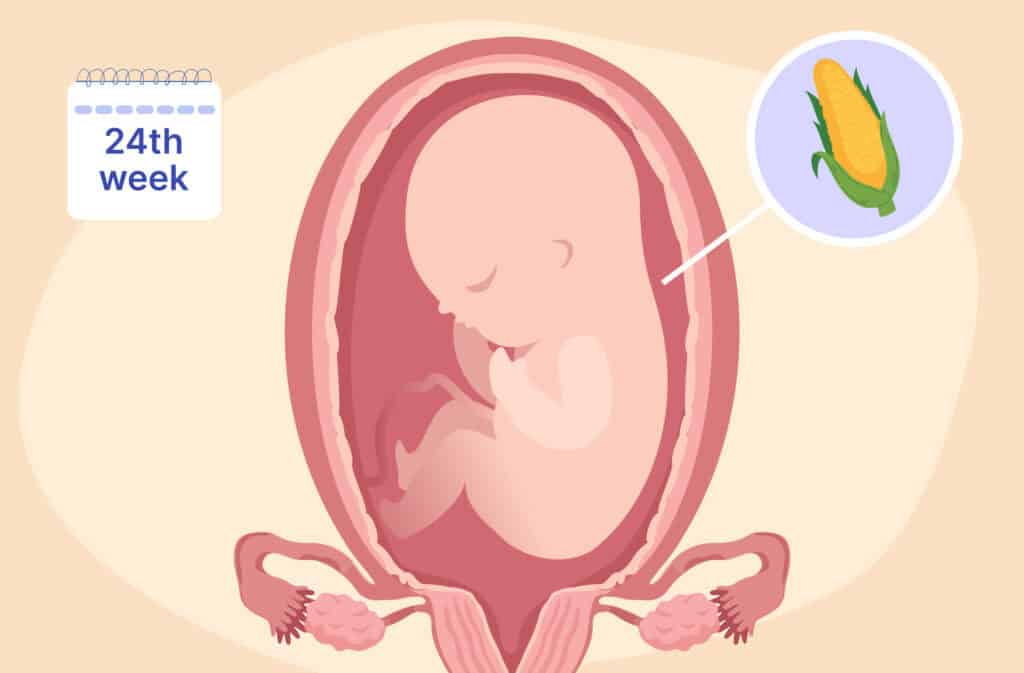
At 24 weeks pregnant, your baby is growing fast and developing key features. Learn about fetal size, symptoms, and self-care tips for week 24.

